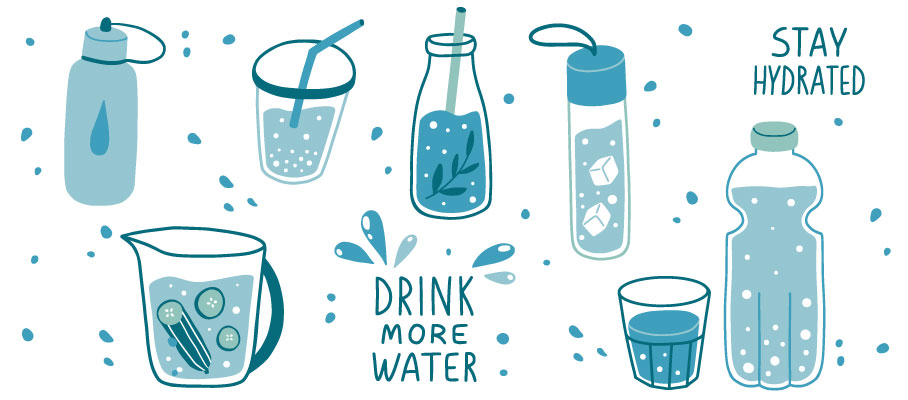A sore throat, although common, can also cause severe pain. Whether it's a scratchy, itchy sensation or a burning sensation while you swallow. But you don’t need to panic. Understand what causes a sore throat ways to alleviate it and how to manage it.
Causes of sore throat :
 A sore throat can be caused by several factors, A few of the common causes are as follows:
A sore throat can be caused by several factors, A few of the common causes are as follows:
Viral Infections:
Viral infections that include the common cold, flu, chicken pox, measles, etc can commonly cause sore throat.
Bacterial Infections:
Several bacterial infections can cause to sore throat, but streptococcus pyogenic is the most common cause of sore throat due to bacteria can cause the infection. Those bacterial infections need antibiotics to cure.
Straining Muscles:
Straining the muscles in the throat by talking loudly for longer periods and yelling can also cause a sore throat.
GERD:
Gastrointestinal Reflux Disease is a digestive disorder in which the stomach acids back up in the food pipe (esophagus) leading to a sore throat.
Allergies & Irritants:
Allergens and irritants such as pet dandruff, pollens, and dust can also cause a sore throat. Irritants that may cause chemical exposure, and pollution can also cause sore throat.
Types of Sore throat:
There are three types of sore throat:
1)Pharyngitis which may result in swelling of the throat and soreness in the throat.
2)Laryngitis is swelling and also causes redness of the voice box or larynx.
3)Tonsillitis is swelling and redness of the soft tissue tonsils located at the back of the mouth.
Symptoms of a Sore Throat:
The symptoms of sore throat may include:
1)Pain or infection in the throat, specifically while swallowing any food.
2)Scratchy and dry throat.
3)Tonsillitis and Swollen glands in the neck.
4) Muffled or hoarseness of voice is seen due to a sore throat.
5) Inflammation or redness around the back of the throat.
6)Coughing or sneezing more often and common than usual while having a sore throat.
Along with these, you can also be affected by some of the symptoms such as fever, runny nose, body pains, nausea, and vomiting.
Tips to Reduce Sore Throat at Home
While you experience a sore throat based on the severity of the pain you need to consult a doctor and there are a few remedies available that can help you to relieve pain, here are a few tips that can reduce sore throat:
Stay Hydrated:
 Drink lots of fluids, along with water, tea, and broth, to keep your throat moisturized and save you from dehydration.
Drink lots of fluids, along with water, tea, and broth, to keep your throat moisturized and save you from dehydration.
Gargle with Salt Water:
Mix a teaspoon of salt in warm water and gargle numerous times a day. Saltwater can help lessen swelling and loosen mucus, providing relief from throat pain for a while. Gargling with baking soda can also help in relieving sore throat.
Use a Humidifier:
Humidifiers can reduce the dryness in the throat mainly during winter by adding moisture.
Reduce Pitch:
Limit speaking, or yelling to allow your vocal cords to relax and heal. Even whispering can cause pain in the vocal cords so try to avoid it.
Honey:
 Honey has herbal antibacterial properties and may help in relieving sore throat and lowering infection and coughing. Mix a teaspoon of honey into heated tea or simply you can have a spoon of honey on its own.
Honey has herbal antibacterial properties and may help in relieving sore throat and lowering infection and coughing. Mix a teaspoon of honey into heated tea or simply you can have a spoon of honey on its own.
Hard Candy:
Sucking on throat lozenges or curable candies can increase saliva production, which helps hold the sore throat and can temporarily relieve pain.
Try Herbal Remedies:
Herbal substances like ginger, licorice root, or slippery elm may also have soothing properties that may help to relieve sore throat.
Steam Inhalation:
Inhaling steam from a bowl of hot water or taking a warm shower can help moisturize the sore throat and lose the mucus, providing great relief from congestion and throat inflammation.
Avoid Irritants:
Stay away from smoking, air pollution, and different environmental pollutions that may increase throat irritation.
When to Seek Medical Attention
While the majority of sore throats are minor and can easily managed at home, some severe cases might require medical care. You need to consult a doctor if:
1)Your sore throat lasts longer than a week.
2)You experience difficulty breathing and swallowing.
3)You have an excessive fever (above 101°F or 38.3°C).
4)You experience a rash or white patches on your throat.
5)You are having long-time ear pain or swelling in and around the neck.

